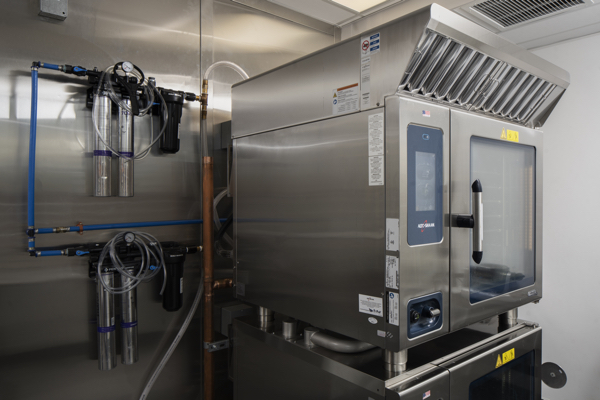For more than a decade, the hotel industry has focused on green practices at the operational level, measures that are somewhat easy to implement, increase savings, and look good on corporate ESG reports. But with climate warnings sounding louder and more urgent, combined with growing consumer awareness of “greenwashing,” hotels are being pushed to go deeper if they want to make good on their sustainability promises.
Contributed by Juliana Shallcross
“That’s ultimately where the industry needs to go,” says Jon Buerge, chief development officer at Urban Villages and the developer of forthcoming Populus Hotel in Denver, Colorado. “It’s not just about the little things we can do to slightly reduce our carbon footprint. It’s about saying, ‘Carbon is going to get emitted. Now let’s figure out how to take it back out.’”
With the arrival of innovative technology and financial incentives, a new breed of hotels is experimenting with sustainability initiatives from the concept stage all the way through after opening, with high hopes that what they achieve can serve as green models for future hotels.
Here is the first of three case studies we will present over the next three days:
Hotel Marcel
At the Hotel Marcel in New Haven, Connecticut, which opened in April, the entire hotel is powered by electricity from the guest rooms to the kitchens, the laundry machines, and even the hotel car, which is an old airport shuttle van converted into an electrical vehicle.

Bruce Redman Becker of Becker + Becker, the hotel’s architect and developer, says a decision was made early on not to use any fossil fuels, instead relying on solar panels and a renewable energy micro-grid consisting of solar-charged batteries.
“We’re not looking to offset our use of fossil fuels, we’re just not using fossil fuels,” he explains.

The hotel, a part of Hilton’s Tapestry Collection, aims to be net-zero in its first year of operation, producing all of its own energy on-site. Its Energy Use Intensity (EUI) rating is projected to be 34kBtu per square foot, about 80% less than the median EUI for hotels in the United States. Already, Becker says the hotel’s utility bill is less than 10% of what is typical for a hotel of its size.
Not only do the building’s sustainability improvements increase efficiency, Becker says they also add value to the property. “If you don’t have a quarter of a million dollars every year going out to pay a utility bill and you have a value of property at a 5% cap rate that makes the hotel worth US$5 million more than it should be,” he says.

The Hotel Marcel even qualifies for a 30% tax credit on its battery storage and has the option to push energy back into the area’s power grid for additional revenue.
“This movement to electrification is not a burden,” Becker says. “It saves money, enhances performances and reduces maintenance.”
And Becker believes what Hotel Marcel has done is easily replicable at more hotels. “Unlike a lot of other real estate sectors, there’s usually ongoing investment in hotels to make them current and meet standards,” he says. “So, to layer on sustainability initiatives isn’t that challenging to do. Owners will appreciate the savings; guests will realize it doesn’t compromise their comfort.”
